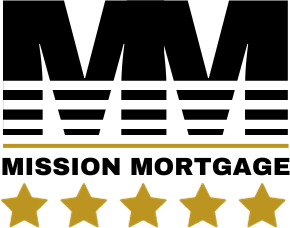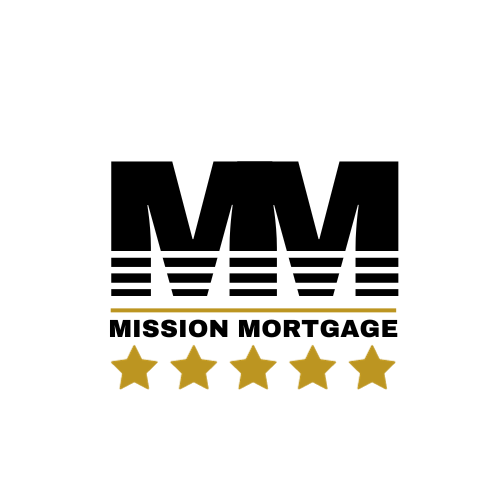Leveraging Your Home Equity
For homeowners in Pennsylvania, the equity you've built in your home isn't just a number on paper; it's a powerful financial tool waiting to be utilized. Whether you're looking to renovate your home, consolidate debt, or finance a major life event, understanding how to use your home equity is key. This guide will delve into Home Equity Lines of Credit (HELOCs) and Home Equity Loans, offering insights into how Pennsylvania residents can leverage these options to their advantage.
Understanding Home Equity:
Home equity is the difference between your property's current market value and the remaining balance on your mortgage. As you make mortgage payments over time, your equity increases — providing a foundation for financial flexibility. For example, if your home is worth $250,000 and you owe $100,000; your equity in your home is $150,000. Through a HELOC or a Home Equity Loan, you can utilize a portion of this equity for your personal needs.
What is a Home Equity Line of Credit (HELOC)?
A HELOC operates much like a credit card, offering a revolving line of credit based on your home's equity. It comes with a draw period, typically 10 years, during which you can borrow up to your limit, repay, and borrow again. HELOCs offer the flexibility to borrow as needed, making them ideal for ongoing projects or expenses. HELOCs usually have variable rates, which can change over time based on market conditions.
What is a Home Equity Loan?
Unlike a HELOC, a Home Equity Loan provides a lump sum of money upfront, with a fixed interest rate over a set repayment term. It's a solid choice for homeowners who need a specific amount for a one-time project or purchase. A common example is for a roof replacement or a larger one-time project.
A key difference between a home equity loan and a HELOC is with regards to interest rates. Home Equity Loans usr fixed interest rates, offerering predictable monthly payments, which simplifies planning.
A Common Use: Debt Consolidation
For many homeowners in Pennsylvania, managing multiple debts each month isn't just challenging—it can be a significant financial strain. This is where HELOCs and Home Equity Loans shine as particularly effective tools. They're increasingly popular for consolidating high-interest debts, such as credit card balances, personal loans, and medical bills, into a single, more manageable payment. Here’s why:
Lower Interest Rates: Typically, HELOCs and Home Equity Loans offer significantly lower interest rates compared to credit cards and other unsecured debts. By consolidating these debts, homeowners can reduce the amount of interest paid over time, potentially saving thousands of dollars.
Simplified Payments: Juggling multiple payment due dates and amounts can be overwhelming. Consolidating debt through a Home Equity Loan or HELOC simplifies your financial management by combining these obligations into one monthly payment.
Fixed vs. Variable Rates: A Home Equity Loan provides a lump sum at a fixed interest rate, offering predictable monthly payments—a reassuring aspect for budget-conscious homeowners. On the other hand, a HELOC, with its variable rate, offers flexibility in borrowing and repayment, suited for those with fluctuating financial needs.
Tax Benefits: Interest paid on both HELOCs and Home Equity Loans used for debt consolidation can sometimes be tax deductible, offering additional financial incentives. However, it's crucial to consult with a tax advisor to understand the specifics of how this applies to your situation.
Credit Score Improvement: By consolidating high-interest debts and maintaining timely payments on the HELOC or Home Equity Loan, homeowners can improve their credit score over time. This is due to the reduction in credit utilization ratio and the positive payment history associated with the consolidated loan.
Other Common Reasons for Using Your Home’s Equity
Beyond debt consolidation, homeowners tap into their home equity for various reasons, leveraging Home Equity Loans or HELOCs to meet their financial needs or achieve personal goals. Here are some common reasons people pull out their home's equity:
Home Improvements and Renovations: One of the most popular reasons for accessing home equity, homeowners invest in renovations that can enhance their living space and potentially increase the property's value. Projects might include kitchen remodels, bathroom upgrades, or adding an extension.
Education Expenses: Paying for college or postgraduate education can be a considerable expense. Some homeowners use their equity to cover tuition fees, books, and living costs, investing in their or their children's future earning potential.
Emergency Fund: In times of financial uncertainty or unexpected events, such as job loss or medical emergencies, homeowners might tap into their equity to create a financial buffer, providing peace of mind and security.
Major Purchases: Significant one-time purchases, such as buying a car, financing a wedding, or taking a dream vacation, are other reasons homeowners might access their equity. Using home equity can offer lower interest rates compared to other financing options like credit cards or personal loans.
Investment Opportunities: Some homeowners use their equity to invest in the stock market, real estate, or start a business, aiming to generate a return that exceeds the cost of borrowing against their home.
Retirement Planning: For homeowners nearing retirement without sufficient savings, home equity can be a crucial source of funds. Whether supplementing retirement income or covering healthcare costs, tapping into equity can help ensure financial comfort in later years.
Relocation or Downsizing: Homeowners planning to move or downsize might access their equity to cover moving expenses, make a down payment on a new property, or simply enhance their financial flexibility during the transition.
Utilizing the equity in your home can be a strategic financial move for Pennsylvania homeowners. Whether through a HELOC or Home Equity Loan, accessing your home's equity can provide the financial means to achieve your goals. Carefully consider your needs, consult with professionals, and choose the option that best aligns with your financial strategy.
Before deciding, speak with a mortgage professional who can provide personalized advice based on your financial situation. Our team can help look at your specific situation and help you choose confidently what’s best for you financially.

